The Audubon Observer, September 2021
|
|
||||
COMMUNITY SCIENCE OPPORTUNITY!
How to participate in this project next year: Emily and her team will visit your yard multiple times during the breeding season (late April through the end of July) to band and tag robins as well as search for robin nests and color-banded birds. If you would like to have your yard be a part of this study, we ask that participants help monitor nests, find additional nests, and keep an eye out for their banded robins. Outcomes: We will provide you with the locations provided by the tags so you can keep up with where your robin is throughout the year! Emily’s work will help us better understand the mysteries behind migration and will eventually appear in several scientific journals. For a teaser on this research so far, check out articles in the Associated Press here and here. You can learn lots more about the study here. If interested, please reach out to Emily at ejw75@georgetown.edu. ~ Guest Contributor Emily J. Williams, PhD Student, Georgetown University LIGHTS OUT NORTHEAST FLORIDA CALL FOR VOLUNTEERS
Now we are ready to start the process again. We expect fall migration to be worse than spring because of the many first-year birds that will be migrating for the first time. We also have some data that was collected last fall when we were establishing our routes that seemed to indicate that fall is the bigger problem for birds migrating through the Jacksonville area. We’ll start the routes on September 15 and we are looking for volunteers. Volunteers DO NOT need to know what kind of bird they are finding! When you turn in the bird, we can figure that out. All volunteers go in pairs. We will try to pair new volunteers with experienced ones but we may offer a virtual training session as well. All supplies (except a cell phone) are provided. Volunteers commit to one route, one day a week for eight weeks, starting about dawn, and each route takes roughly an hour to an hour and a half to complete. Learn more about the Lights Out Northeast Florida initiative here. If you are interested in helping us save the lives of migrating birds, please complete our online application, and we'll be in touch soon. ~ Carolyn Antman, Conservation Director for Duval County MAKE YOUR OWN SUET LOG FEEDER
You will need a log, around 3” in diameter and about 2’ long. I like to use a lighter wood type. Once the log is secured, you will need a drill with a 1.5” paddle or spade bit. Drill holes (1.25” deep) with your paddle bit starting with your first hole ~1” from the top of the log, then do a quarter turn of the log clockwise, drill another hole ~1.5” lower than the previous hole, repeat this process until you’re at the bottom of the log. At the top of the log drill a pilot hole and install an eyebolt screw. As always, an adult should be the one using the drill, and always use appropriate PPE. Lastly it is very important to ensure your log is safely secured in a vise before drilling holes. Fingers crossed you get a Brown Creeper or Red-breasted Nuthatch at your new suet feeder this winter - enjoy! ~ Andrew Schumann, Conservation Director for Nassau County MEMBERSHIP MATTERS!
Are you an Audubon member? If not, look for our membership campaign coming later this month. It's easy to join, and you'll be uniting with over 1,200 others from our area in support of birds and the habitats they rely on to survive. Fall migration is starting, and many, many birds will be coming through our area soon. Get the facts during our campaign and then join us! If you are uncertain of your membership status, please feel free to reach out to our Membership Director Christine Lucas at christinelucas@duvalaudubon.org. FALL ACTIVITIES PLANNING
We will continue to offer our monthly Open House events at our Crosby Sanctuary conservation property in Orange Park from 8 am until noon on the fourth Saturday of every month (except December). If you haven’t visited Crosby Sanctuary yet, this is a great opportunity to experience this beautiful place for yourself. No group activities will be offered during the Open House - it's just an opportunity for folks to enjoy nature in our favorite place. Programs will be still held virtually via Zoom on the third Monday of each month through November, but we are planning to host our first in-person meeting in over a year at 6:30 pm on December 20th at The Garden Club of Jacksonville. Our presenter that evening will be our very own treasurer Helen Kehrt, who will share her fabulous photos from her birding travels over the last several years. Our virtual program offerings include a presentation by conservationist Paul Baicich, whose talk will focus on birding and conservation in Cuba, as well as several other fascinating programs that you won’t want to miss. Details and instructions for Zoom participation are available on our website as well as our Meetup page and social media outlets. Due to the uncertainty of the pandemic situation, we are waiting until later this year to make decisions about our Spring 2022 activities. We hope it will be possible to return to our full schedule of in-person outings and monthly meetings in the spring, but we first want to be sure that we will be able to provide a safe setting for all participants before making concrete plans. Here are our upcoming activites for the month of September:
Other area organizations also have some great events and volunteer opportunities happening this month:
There's plenty to do in our area in September. We look forward to seeing you soon! Duval Audubon Society, Inc.
|
||||
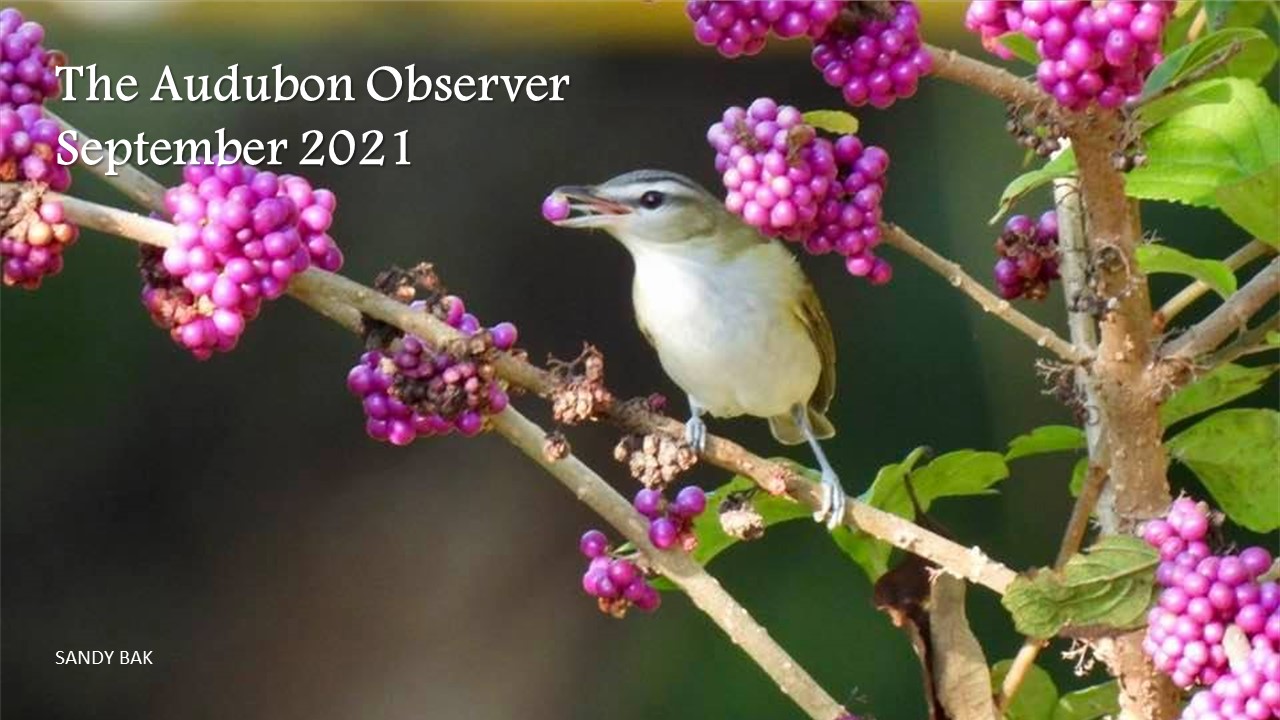
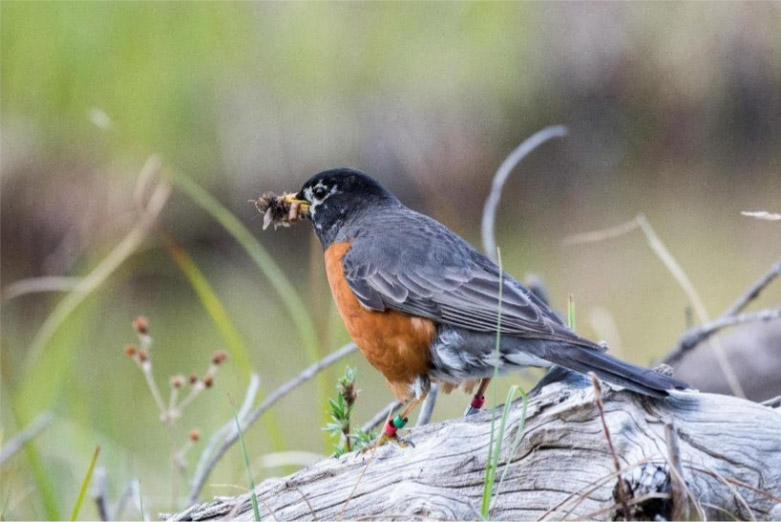 Despite their scientific name (Turdus migratorius),
Despite their scientific name (Turdus migratorius), 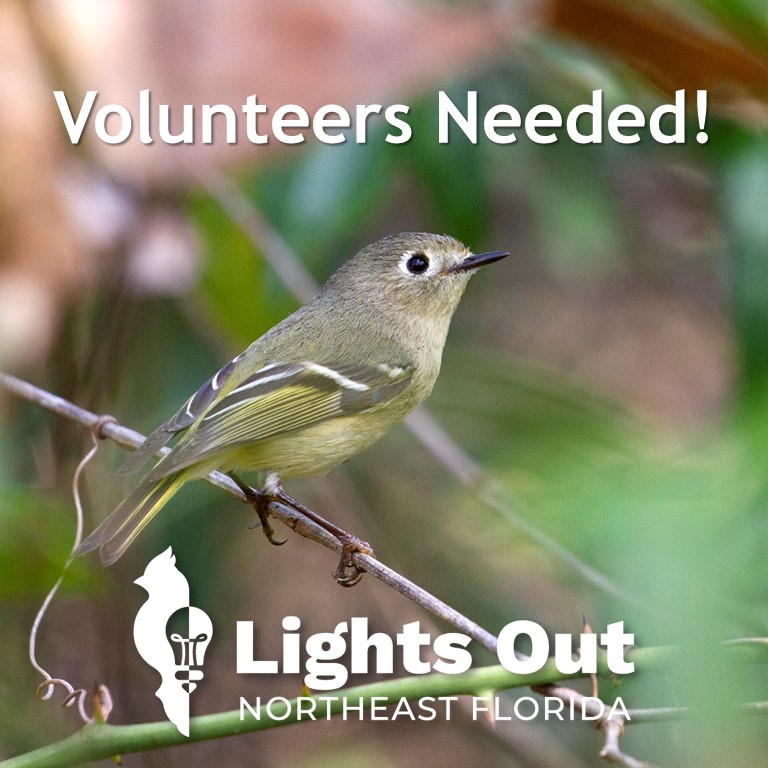
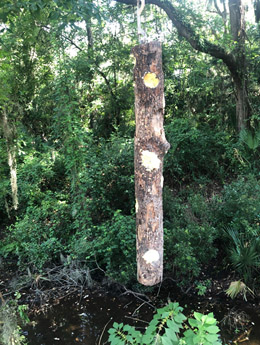 Making a log suet feeder is an easy project I fondly recall doing as a kid with my father, and it’s a project I now do with my son. Although the log suet feeder is a bit messier when loading your holes with suet and takes a bit more time than loading up a cage suet feeder, to me it is worth the natural look, and the kids love refilling it! Late summer is a good time to get your suet-loving birds used to their new suet feeder before our chilly Florida winters kick in!
Making a log suet feeder is an easy project I fondly recall doing as a kid with my father, and it’s a project I now do with my son. Although the log suet feeder is a bit messier when loading your holes with suet and takes a bit more time than loading up a cage suet feeder, to me it is worth the natural look, and the kids love refilling it! Late summer is a good time to get your suet-loving birds used to their new suet feeder before our chilly Florida winters kick in!
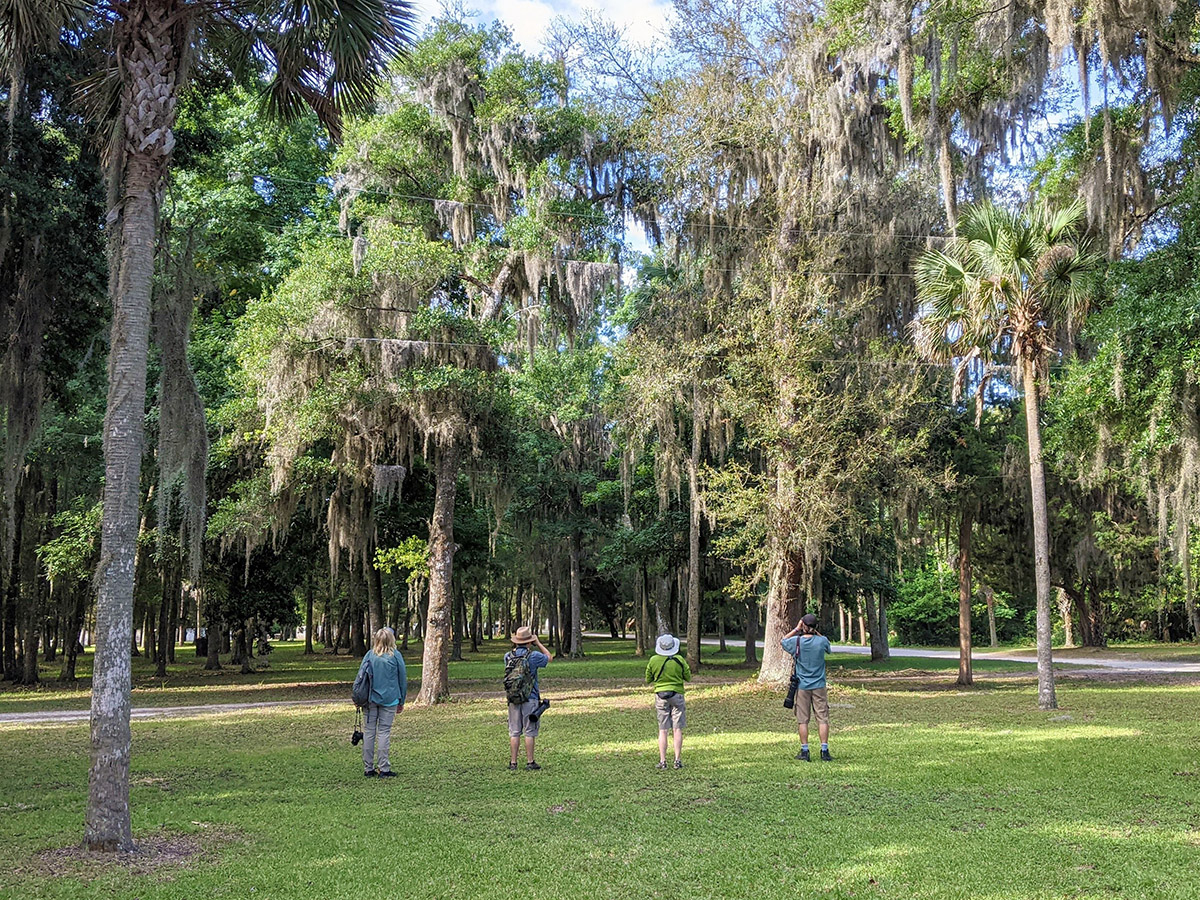 After more than a year of not being able to offer regular in-person activities, we’re happy to say that we’re planning to host more birding outings and other activities in our community this fall. However, in recognition of the current COVID resurgence, attendance at most outings will be limited and will require advance registration on
After more than a year of not being able to offer regular in-person activities, we’re happy to say that we’re planning to host more birding outings and other activities in our community this fall. However, in recognition of the current COVID resurgence, attendance at most outings will be limited and will require advance registration on 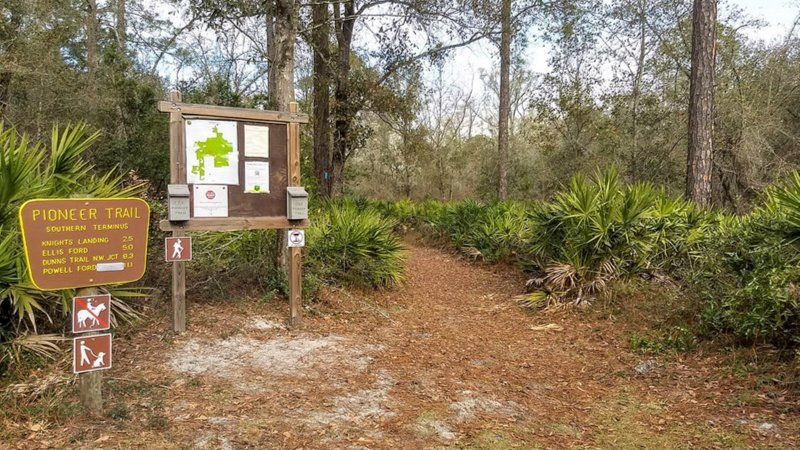 Field Trip @ Jennings State Forest
Field Trip @ Jennings State Forest